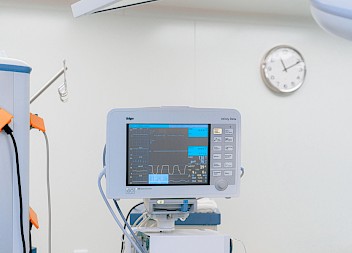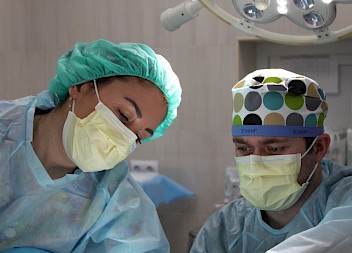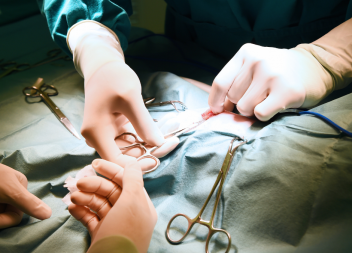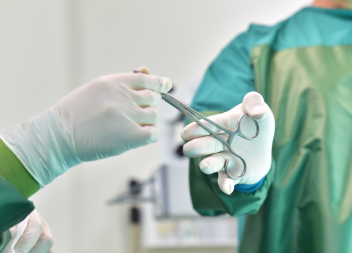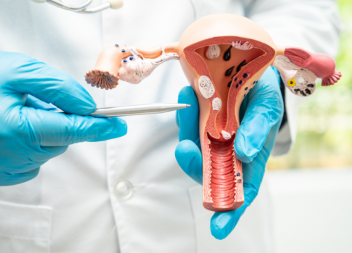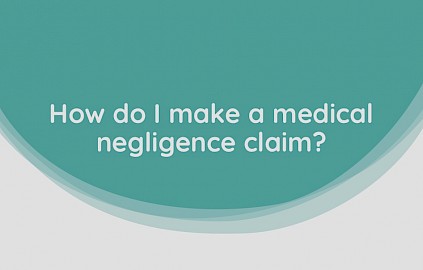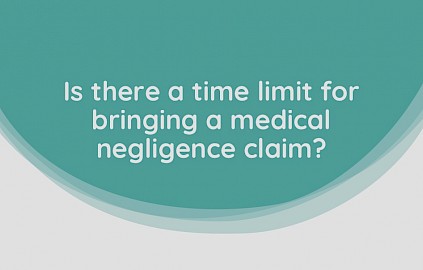Compensation can be claimed where there has been inappropriate advice concerning treatment options. In relation to each option, you should have a full explanation of the risks and benefits. This enables you to make an informed decision.
You may have a claim where there have been excessive delays in providing you with treatment. In addition, where there has been substandard surgical care that amounts to actual Medical Negligence.
Do contact our friendly team of specialist lawyers at Medical Solicitors. We conduct most of our Clinical and Medical Negligence claims under ‘No Win, No Fee’ agreements, also known as Conditional Fee Agreements. Our clients do not have to worry about how they can possibly afford to fund a claim. You have nothing to lose in speaking to us.
What is Gynaecology?
Gynaecology means the ‘science of women’. This relates to the health of reproductive organs. Women need highly specialised medical care for their gynaecology issues. This is a large area of medical practice. Equally, gynaecology is a large contributor to medical negligence claims.
Various problems can occur during treatments, such as perforation of the womb. Perforation can occur during insertion of a coil, or during a pregnancy termination procedure. Investigative procedures, called ‘hysteroscopy’, can also end up with injuries. Failures to measure the length of the vagina and womb can lead to instruments being inserted too deeply. Routine hysteroscopy procedures can also be conducted by those less experienced in their field.
Perforations can be repaired IF recognised at the time of injury. Perforations can lead to infertility issues. This is because delays in recognising the injury can make the problem worse. Delays can lead to infection and sepsis. Sepsis can lead to the loss of the womb (‘hysterectomy’). Even if hysterectomy does not result, women can be left with shrunken (‘atrophied’) wombs after serious infection cases. This can mean that they can no longer carry a baby to term, or deliver a baby safely. It can even mean that a lady cannot opt for egg retrieval to allow for surrogacy as egg retrieval becomes too dangerous for the lady wishing to have a baby.
Issues of consent are important. Full advice should be given about the removal of pelvic organs. A properly signed consent should be taken for a surgical procedure. During a hysterectomy procedure to remove the womb, it would be wrong to also remove the ovaries unless a patient has been advised about this and has given written consent.
Why does Sterilisation go wrong?
Sterilisations are commonly successful, but these procedures tend to be left to more junior doctors. It is not uncommon for a junior surgeon to mistake surrounding tissues for the fallopian tube. This can lead to the sterilisation clip being applied to a ligament. Sterilisation clips should be applied to the fallopian tube. Is this happens, it will lead to an unplanned pregnancy, usually within 12 months of the surgery.
If pregnancy occurs later than a 12-18 month period after sterilisation, then this will usually be down to bad luck, rather than a surgical error. The fallopian tube can regenerate itself by forming a tube around the clip and finding its way back to the ovary (‘tubal lumen regeneration’). However, this does take time so tends to happen after quite a few months.
What can I claim when sterilisation goes wrong?
If treatment goes wrong in sterilisation, there are various claims that can be made:
-
Wrongful conception. An action in contract may arise if the sterilisation procedure was performed outside the NHS in the private sector.
-
Negligence. A breach of duty arises when an operation is not carried out in accordance with the practice accepted as proper by a reasonable body of gynaecologists. This is also referred to as the Bolam test.
-
Negligence also occurs when there is failure to give full advice in pre-operative counselling.
-
Wrongful birth. This is where a mother would have opted for lawful termination of pregnancy had she been properly advised about risks of pregnancy. It also covers situations where properly advised, she would have avoided getting pregnant at all.
Women are entitled to recover compensation called ‘general damages’ for pain and suffering during pregnancy and delivery, and loss of earnings during pregnancy. However, a judgement in the year 2000 held that the costs of bringing up a healthy child can no longer be claimed (as per, McFarlane v Tayside Health Board). This includes excluding associated loss of earnings.
Can I claim for surrogacy costs in the UK?
You can! A recent Uk Judgement has finally (and about time!) changed the attitude of the UK courts to surrogacy costs. Whilst you still cannot legally enter into surrogacy costs in the UK easily, you are allowed to claim for surrogacy costs that are legal in other countries, such as in particular California.
Can I claim for disability if sterilisation fails?
Where sterilisation fails because of substandard medical care, there is an exception, for a disabled mother. Compensation for the costs of bringing up a healthy child was allowed in a case where the mother was disabled (as per, Rees v Darlington Memorial Hospital NHS Trust 2002). This was because this parent was not in the same position as an able-bodied parent.
Conversely, additional costs caused by bringing up a child with a serious disability are allowed. Such claims have been allowed in the cases of:
- Parkinson v St James’s & Seacroft University Hospital Trust 2001
- Salih v Enfield Health Authority 1991.
Both parents can claim for shock and distress on discovering the child’s condition is disabled. They can also claim for increased stress of bringing up the child. In addition, for lost earnings they would not have suffered had the child been healthy (as per, McLelland v Greater Glasgow Health Board 2001).
Parents that chose sterilisation to avoid the risk of a child with congenital abnormalities can recover the costs associated with the child’s disabilities. This can be even though the disabilities were not caused by the substandard procedure.
What can I claim generally for failed sterilisation?
Families can claim a sum that is allowed to reflect the loss of the family’s ‘loss of opportunity’. This means loss of opportunity to live life in a way that had been planned prior to the pregnancy.
In addition, if a woman is proven to suffer from a recognisable psychiatric disorder, caused by the pregnancy, she may claim for that. If a psychiatric disorder has prevented her from working, after pregnancy, she may also claim for that. If so, a loss of earnings claim is then allowed. This can cover loss of earnings during the period of time over which the psychiatric disorder is expected to last.
Also, parents that chose sterilisation to avoid the risk of a child with congenital abnormalities can recover additional costs. This is for costs associated with the child’s disabilities, even though the disabilities had not been caused by the clinician’s negligent sterilisation.


